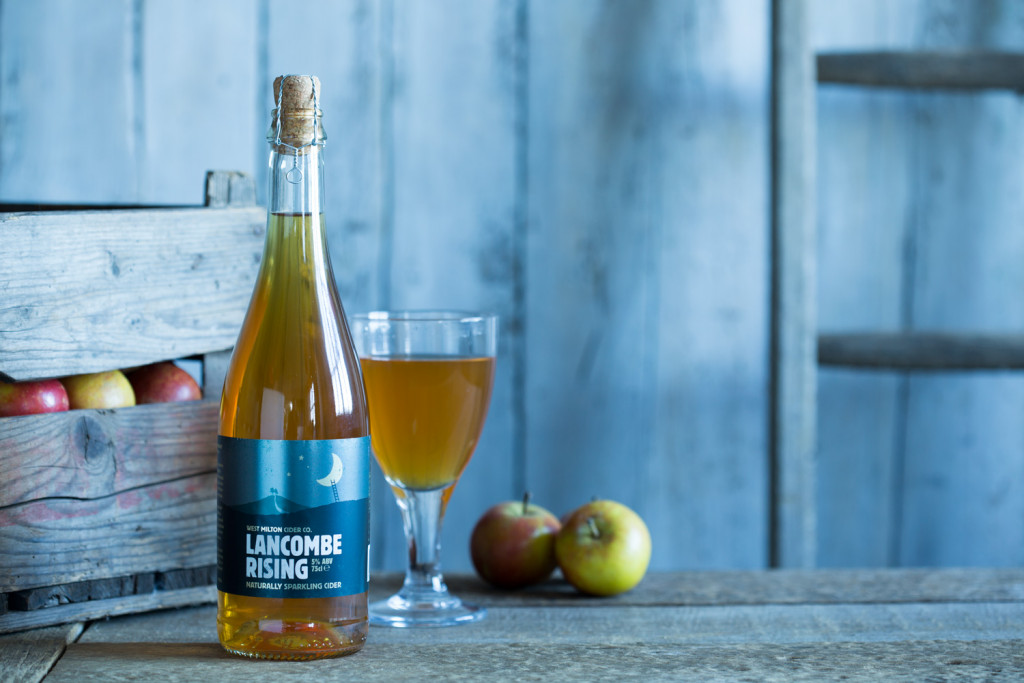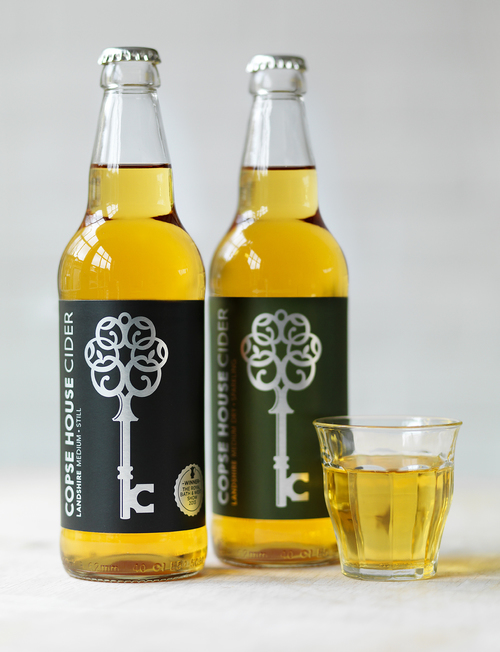Given the perception of cider as the perfect
tipple to enjoy out of a two-litre bottle on a park bench, it’s easy to forget
that it forms part of a noble tradition. Ironically for a drink that is often
the ‘usual’ for those taking their first faltering steps in underage drinking,
it’s one of the oldest drinks in Britain, a legacy of the Normans, who had been
producing it in France since the sixth century. Production subsequently
flourished in the warmer climate and chalky soils of the West Country,
Southwest, Wales, Kent and East Anglia, and was a standard feature of the
agricultural calendar when every farm had an apple orchard.
Today, cider makes up 9 percent of the UK
drinks market and we guzzle 1.5 billion pints of the sugary beverage a year.
Except we don’t. The vast majority of what we’re drinking isn’t real cider, but
an overly sugary, fizzy catastrophe filled out with artificial flavourings.
Keeping
it real
To taste real cider, which is one of the
highlights of the food festivals and farmer’s markets across the county, is an
epiphany. There are about 480 real cider makers in the UK, and their product
must be at least 90 percent fresh apple juice, usually using our dry and
astringent English bittersweet apples. Commercial canned cider, by contrast,
only needs to contain around 35 percent apple juice. Real cider can be as dry
as wine, as flat as apple juice, and as robust as a porter. Of course it can
pack a kick, but the fruit and autumn aromas should come through most of all. The
idea that cider should be carbonated is a marketing flourish more than a
tradition, too.
It’s also relatively simple to make. Press
late-autumn apples, introduce yeast, and allow the liquid to ferment, followed
by maturing in wooden casks. The pigs get the pressed apple mulch, and counties
like Dorset get big plastic jugs of West Country nectar. Look out for the
following home-grown ciders...

DORSET NECTAR
Oliver and Penny were looking for a barn in
which to do metal sculpting, and found themselves in charge of a 3,000-tree
apple orchard near Bridport. They now produce 10 ciders using 11 varieties of
apple, including Brown’s, Dabinett and Tremletts Bitters and rely solely on
natural wild yeasts. Read more here...

WEST MILTON CIDER
Based in West Milton, near Bridport, Nick
and Dawn Poole started producing cider in 2000 as a way of clearing their
orchard to make way for horses. They started off making dry, clean farmhouse
ciders such as Lancombe Rising, and are best known for their Dorset label:
Starlight, Twilight and Moonlight. By ‘keeving’ the cider to remove natural
yeasts before fermentation, they produce ciders that are naturally sweet. Read
more here...
BRIDGE FARM CIDER
Nigel Stewart is a regular feature at shows
around the Southwest, serving cider from the cask wherever there’s a cider
tent. His ciders blend around 11 varieties of Dorset and South Somerset apples,
which are milled and pressed using a turn-of-the-century traditional press. The
cider is squeezed between racks and cloths and left to ferment over the winter.
The farm’s bottled sparkling cider is a Devon County Show winner. A wealth of
information and clearly passionate about cider, Nigel is the person to talk to
if you want to discover that everything you thought you knew about scrumpy was
a cruel deception. Often touted as ‘real’ cider, it is – according to Nigel – a
marketing sleight of hand designed to package lower quality apple hooch. Read
more here...

THE COPSE HOUSE
Bob Chaplin received an award for a
lifetime contribution to the cider industry, is secretary of the Southwest of
England Cidermakers Association, and serves as a judge for regional
competitions. Not surprisingly, his still and sparkling ciders from Kine Bush
Farm in Sandley are among the best. The original Landshire Medium is a Taste of
Dorset winner. The first press of the 11,000-tree orchard was just 1,000 litres
in 2012, but production is growing significantly. Read more here...
MARSHWOOD VALE
Up until 2010, Marshwood Vale cider was made from
hand-collected apples, pressed using a Victorian scatter mill and straw press,
and fermented for six months in oak barrels. The process is a bit more hi-tech now, but the final product is still Real Cider with nearly all the sugar fermented to alcohol. As well as the well-regarded Tom Putt
and Dorset Tit, the farm also produces mead, one of the oldest alcoholic drinks
in the world. Read more here...



PURBECK CIDER COMPANY
Joe Hartle, son of Peter and Hazel who
created Purbeck Ice Cream, began cider production in 2006 in the Purbecks. You
might have seen Joe’s Dry Cider, Dorset Draft or even the Devil’s Leaf mixed
with nettles, among others. The next step is crowdfunding for a 15-acre,
5,500-tree orchard to move things to the next level. The campaign starts on
July 1. Read more here...
If you have a particular cider to
recommend, or just want to leave a comment, all contributions are welcome in
the section below.




No comments:
Post a Comment